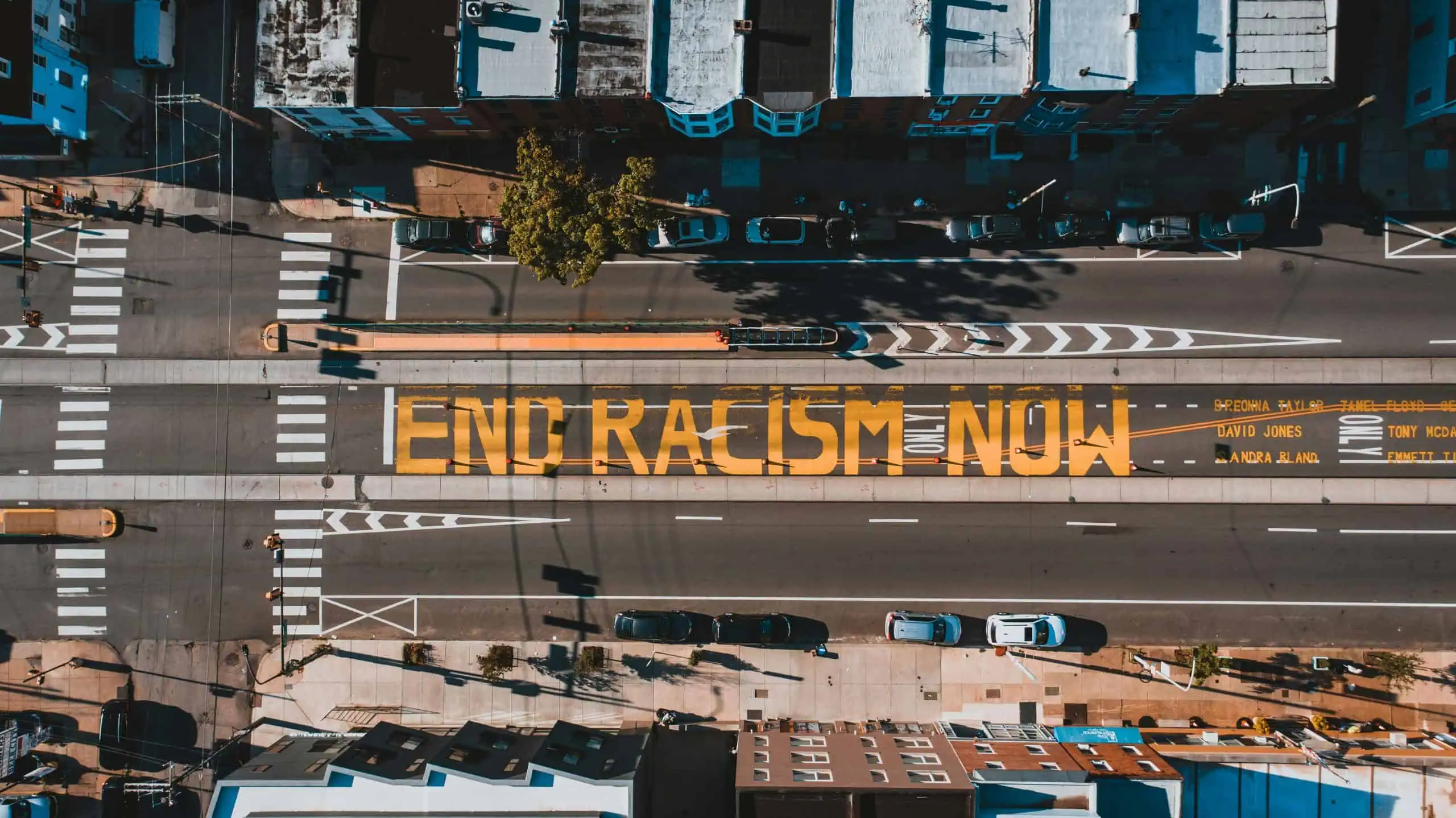Welcome to our comprehensive guide on understanding and combating racial injustice. This resource is designed to enlighten and empower you—whether you’re a student entering the workforce, an entry-level job seeker, or simply someone looking to broaden your understanding of this critical societal issue.
Why It Matters
Racial injustice affects all aspects of society—from education to healthcare and housing. By educating ourselves and taking informed actions, we can each contribute to making a meaningful difference.
In the following sections, you will discover the historical context of racial injustices, current issues, and the strides we are making towards equality. You will also learn about education’s role and proactive measures businesses undertake to promote inclusiveness. Importantly, you’ll find practical ways you can help combat racial disparity and promote justice in everyday life.
Embark on this journey with us to understand more deeply and act decisively against racial injustice.
Understanding Racial Injustice
Racial injustice refers to the discriminatory practices that impact individuals based on their race or ethnicity. It ranges from overt actions to more subtle systemic issues. This section explores the dimensions of racial injustice and its pervasive impact on society.
Critical Aspects of Racial Injustice
Racial injustice manifests in various sectors, including education, employment, healthcare, and law enforcement. Below are some critical points highlighting how it permeates these areas:
-
- Educational Disparities: Students from minority communities often face more significant challenges in accessing quality education. This gap limits their future opportunities.
- Employment Inequality: Discrimination in hiring, promotions, and wages hinders career advancement.
- Legal System Bias: Racial disparities in the criminal justice system show higher rates of arrests, harsher sentencing, and greater police violence.
The Impact of Racial Injustice
Racial injustice affects the individuals directly involved and undermines societal harmony. By maintaining systems of inequality, entire communities are deprived of achieving their full potential, resulting in a cycle of poverty and limited social mobility. For instance, the glossary of Latino cultural terms highlights the unique challenges faced by this demographic, which are rooted in historical biases.
Understanding Through Data
Studies and statistics are essential for understanding the scope of racial injustice. For instance, research from various government census reports shows population demographics and disparities. Additionally, analyzing data helps identify trends and areas needing urgent attention.
Overall, understanding racial injustice requires acknowledgment of its existence and its complex dimensions. We hope to move towards a more equitable society by facing these truths.
Historical Context of Racial Injustice in the U.S.
The roots of racial injustice in the United States are deep and complex, beginning from the era of colonialism and stretching through the centuries. Understanding this historical context is crucial to addressing the current systemic issues.
Colonialism and Slavery
Initially, European settlers established colonies that relied heavily on the enslavement of African people—this period laid the groundwork for racial disparities that would extend far into the future. The impact of slavery disrupted African cultural and familial structures, the effects of which are still felt today.
Segregation and Civil Rights
Following the abolition of slavery, the era of Jim Crow laws began, enforcing racial segregation and unequal treatment under the law. Despite the civil rights movements in the 1950s and 1960s, which fought for equality and justice, many barriers remained in place:
-
-
- Education: Segregated schools led to vast disparities in educational resources and outcomes.
- Public Accommodations: African Americans were denied access to facilities, services, and opportunities.
- Voting Rights: Systematic efforts were made to prevent African Americans from voting through literacy tests and other barriers.
-
Modern Implications
Today, the legacies of these historical injustices are visible in ongoing racial disparities across various sectors. These include disparities in wealth accumulation, educational outcomes, and employment opportunities. For further reading on the progression of inclusion, view the National Park Service’s overview of the Civil Rights Act.
This historical framework sets the stage for current racial issues and underscores the need for sustained engagement and solutions. Understanding the depth and breadth of this history is critical to recognizing why progress may seem slow and what further actions are necessary to combat ongoing racial injustice.
Current Issues and Examples of Racial Injustice
Racial injustice remains a pressing issue in today’s society, impacting individuals and communities across various platforms. Here, we focus on recent instances and the areas they affect.
Systemic Policing Issues
In recent years, numerous high-profile cases of police brutality have highlighted systemic issues in law enforcement practices. These incidents often disproportionately affect African American communities, creating distrust and fear.
Economic Inequalities
Economic disparities continue to widen, with racism playing a significant role in wealth distribution. These issues manifest in higher unemployment rates and lower income levels among minority populations.
Environmental Racism
Minority communities frequently face higher exposure to pollution and lower access to clean resources. This unequal environmental burden contributes to broader health disparities disproportionately affecting these communities.
Housing Discrimination
Despite laws to prevent discrimination, racial biases in housing persist. These ongoing issues illustrate the urgent need for strategies to address and resolve racial injustices that plague society. Moreover, they emphasize why continuous actions and solidarity are vital for real change. Understanding these modern challenges helps in framing effective interventions and solutions. For more information on how these dynamics shape laws, visit the HUD Fair Housing and Equal Opportunity page.
Efforts to Combat Racial Injustice
Various strategies and initiatives are being deployed to tackle racial injustice. The fight against racial discrimination is multifaceted, from legislative changes to grassroots activism.
Legislation and Policy Reforms
Governmental policies aimed at reducing inequality and protecting civil rights have made significant strides. Anti-discrimination laws, affirmative action policies, and reforms in criminal justice are efforts that target institutional biases.
Community and Advocacy Work
Community organizations play a crucial role in addressing racial injustices. They provide support, education, and resources to affected communities and help amplify their voices in the societal discourse.
Corporate Responsibility
Businesses also have a role in promoting racial equality. Many have committed to diversity and inclusion initiatives that aim to foster an equitable work environment and reduce biases in hiring and promotions.
Together, these efforts contribute to the ongoing struggle against racial injustice. Success in this field depends on continued advocacy, inclusive policies, and widespread community support. For further insights, one might explore the NAACP resource page, which offers tools and information to support anti-racism efforts.
Role of Education in Addressing Racial Injustice
Education plays a fundamental role in combating racial injustice by influencing perspectives and fostering a more inclusive society.
Incorporating Diversity in Curriculum
Implementing diverse curricula is vital. It allows students to understand and appreciate cultural differences, promoting empathy and mutual respect. Schools and universities are increasingly including civil rights and social justice studies in their courses.
Educational Equity Programs
Addressing disparities in educational resources equips students from minority backgrounds with fair opportunities to succeed. Various programs aim to close these gaps by supporting tutoring, scholarships, and technology access.
Training for Educators
Providing proper training for educators on issues of diversity and inclusion is crucial. This training helps them to handle racial topics sensitively and educate students about discrimination and privilege.
Furthermore, partnerships between educational institutions and organizations such as the U.S. Department of Education facilitate educational programs that support racial equality. Educating the next generation is a powerful tool to challenge and diminish racial injustice. For more resources, consider exploring Teaching Tolerance, a project that provides free resources to educators.
Initiatives by Diversity-Focused Companies
Many companies are fighting racial injustice by integrating diversity and inclusion into their core strategies.
Diversity Hiring Practices
Companies are adopting policies that promote a more diverse workforce. These include targeted recruitment and bias-free hiring processes, ensuring equal opportunities for all applicants.
Inclusive Workplace Cultures
Creating an inclusive workplace is crucial. This involves sensitivity training, support groups, and clear anti-discrimination policies that foster an environment where all employees feel valued and respected.
Support for Minority-owned Businesses
Support extends beyond internal policies. Many companies are also engaging with and providing support to minority-owned businesses, which is crucial for economic empowerment and community development.
These initiatives promote fairness and drive innovation and growth within companies. For more on corporate efforts to combat racial injustice, consider looking into the SAP Diversity and Inclusion programs.
How You Can Help Fight Racial Injustice
Each individual has the power to contribute to the fight against racial injustice. There are multiple paths to engage and make a difference.
Stay Informed and Educate Others
Knowledge is power. Stay updated on issues of racial justice and educate those around you. Reading, attending talks, or participating in workshops can expand your understanding.
Support Black and Minority-owned Businesses
One practical step is to support minority-owned businesses. This helps strengthen economic equity and empowers communities directly affected by racial injustice.
Advocate for Policy Change
Get involved in advocacy. Support policies that promote justice and equity. This can include engaging in local politics, signing petitions, and supporting organizations that work towards policy change.
Vote
Voting is a powerful tool for change. Participate in elections to support candidates prioritizing racial justice and policy reforms that reduce inequality.
Combining personal actions with community engagement creates a powerful force against racial injustice. For more ways to contribute, visit websites like the ACLU’s Racial Justice Program.
FAQs
Here are some frequently asked questions about racial injustice to deepen your understanding further.
What is racial injustice?
Racial injustice involves unfair treatment of individuals based on their race, impacting their rights and opportunities.
Why is understanding history important to combating racial injustice?
Understanding historical contexts sheds light on current inequalities, guiding effective solutions.
How can education combat racial injustice?
Education enlightens individuals about diversity and tolerance, equipping them to challenge prejudices and advocate for equality.
Why should businesses focus on diversity?
Diverse workplaces promote innovation, reflect societal values, and can drive economic success by embracing a broad spectrum of talents.
What can I do to help fight racial injustice?
Stay informed, support policies and leaders committed to change, and actively participate in community advocacy.
Are there effective ways to support racial justice through shopping?
Yes, purchasing from black and minority-owned businesses supports economic growth and equity in marginalized communities.
Understanding these questions is pivotal in forming a comprehensive view of the challenges and actions necessary in the fight against racial injustice.
Conclusion
Understanding, action, and continuous commitment are crucial in eradicating racial injustice. Each of us has a role to play, whether through job listing websites, education, supporting diverse businesses, advocating for policy change, or being informed and aware.
Join the Movement
Act now—educate, engage, and empower. Join Diversity Employment in its mission to dismantle barriers and build bridges in professional environments. Your voice and actions are vital in the fight against racial injustice. Let’s stand together for equality. Together, we can create a more just and equal society.




